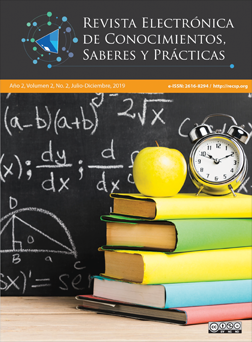Discrimination, reliability and validity of the factory scale of happiness in the university student
DOI:
https://doi.org/10.5377/recsp.v2i2.9299Keywords:
Happiness, Reliability, Validity, Construct, Homogeneity, VarianceAbstract
This article describes the analysis of a happiness measurement scale, consisting of 27 Likert items with five alternatives. The scale was administered to 237 students of the University of the Autonomous Regions of the Nicaraguan Caribbean Coast- Las Minas University campus, men and women, from 16 to over 36 years of age. The item-test analysis found highly significant correlations for each of the reagents (p <.001), which indicates that the items measure indicators of the same construct. Most of the items have a discrimination index of ≥ 0.4, which indicates that they discriminate positively in a high degree, that is, they are well understood and understood for the majority. The reliability scale has a high internal consistency α = 0.895 which means that they can be interpreted in the sense that all the items measure indicators of the same construct (happiness) and that they favor to measure it effectively, since they have or are part largely from the main feature, happiness. Likewise, a direct relationship is shown between the variables associated with happiness (r> 0), but there is also a high correlation with significance at the 0.01 level. The happiness scale has good factor validity. Seven factors were extracted: F1. with 9 items; F2 with 10 items; F3 has 5 elements, factors 4,5 and 6 respectively, only one item and factor 7, it does not present exclusive factor loads, rather it has significant loads (greater 0.24) of items I17 and I15, items that are respectively located and established in the first factors because they converge better in them. The factor loads of each variable, in each of the factors, range between 0.236 and 0.791.
Downloads
861
Resumen (Audio) (Español (España)) 246
Abstract (Audio) 250
Published
How to Cite
Issue
Section
License
At the moment in which a work is accepted for publication, it is understood that the author gives the Electronic Magazine of Knowledge and Practice (RECSP) exclusive rights of reproduction, distribution and sale of his manuscript for exploitation in all countries of the world in paper magazine format, as well as in any other magnetic, optical and digital media. The authors will also transfer to RECSP the rights of public communication for its dissemination and exploitation through Intranets, Internet and any wireless portals and devices decided by the publisher, by making available to users for online consultation of its content and its extract. , for printing on paper and / or for downloading and filing, all in the terms and conditions that appear on the website where the work is housed. In turn, the RECSP authorizes the authors of the works published in the journal to offer a copy of these works once published on their personal webs or in any open access repository. Together with this copy, a specific mention of the RECSP must be included, citing the year and the number of the journal in which the article or research note was published and adding, in addition, the link to the RECSP website.

